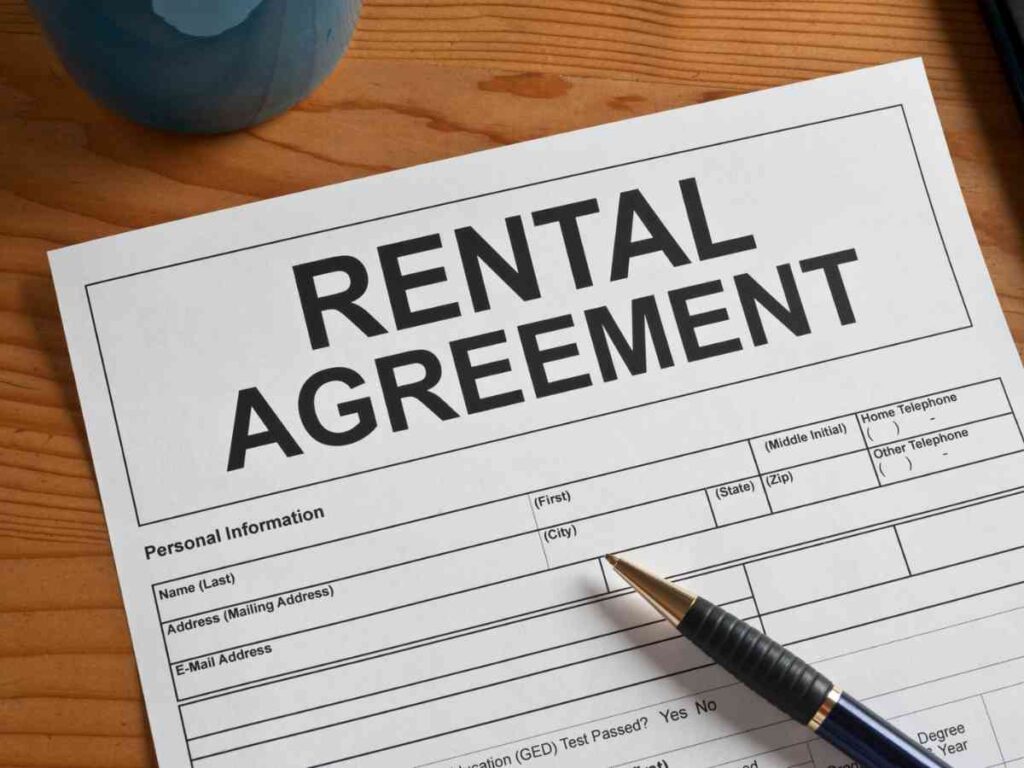Are you considering investing in rental property? If so, you’re probably looking for ways to finance your purchase. From traditional loans to creative financing options, there are a variety of ways to get the money you need. In this blog post, we’ll discuss the different financing options available to help you make an informed decision.
1. Research the local area and get to know the market

When it comes to investing in rental properties, it is important to have a thorough understanding of the local market. Knowing the area will help you determine the best property to purchase, the best price to pay, and how to market the property to potential tenants.
Researching the area will also help you understand the local rental market and the trends of rental prices. Additionally, studying the area will help you determine the types of tenants who are likely to rent in the area, as well as any potential issues that may arise when managing the property.
2. Know your budget and financing options

When it comes to financing a rental property, the first step is to know your budget. You need to consider the costs associated with purchasing and owning the property, such as taxes, insurance, and maintenance. You also need to think about how much you can afford to borrow, as well as the interest rate you will be paying.
Knowing your budget and what you can afford will help you narrow down your financing options. Once you know your budget, it’s time to research your financing options. There are a variety of loan programs available, such as conventional loans, FHA loans, and VA loan programs. You can also consider private money lenders, group investments, and portfolio lenders. It’s important to do your research and find the right loan program for you.
3. Get pre-approved for a loan

Before you start looking for a rental property, it’s important to get pre-approved for a loan. This will give you an idea of how much you can borrow and provide the seller with assurance that you’re a serious buyer.
To get pre-approved, you’ll need to provide your lender with documents such as your credit report, bank statements, and proof of income. Your lender will then review your information and provide you with a loan pre-approval letter to show to potential sellers. This will help you when negotiating with sellers since they’ll know that you’re a serious buyer who has the finances to buy the property.
4. Work with a qualified real estate agent

When you’re ready to purchase a rental property, it’s important to work with an experienced real estate agent. A knowledgeable agent will be familiar with local rental markets and can provide invaluable insight.
They can help you determine the right rental price, the best locations, and will be able to provide assistance in finding tenants. Working with an experienced real estate agent can save you time and money in the long run. They’ll be able to help you find the best financing options and will be able to negotiate to get you the best possible rates.
5. Consider a long-term rental strategy

When it comes to financing a rental property, it is important to consider the long-term rental strategy. This means understanding how much rental income you can generate and how long you intend to hold the property. Having a long-term rental strategy in place can help you to determine the most suitable financing option for you.
It will also give you an idea of the amount of debt you can take on and your ability to repay it in the future. It is important to create a budget and consider all financing options when selecting a lender. Additionally, you should look for tax incentives and understand the rental market. Having a long-term rental strategy in place can help you to stay on top of your finances and get the most out of your investment.
6. Research funding sources

Finding funding for your rental property can be a daunting task. If you don’t have the cash to fund it yourself, you will need to look into different financing options. Depending on your credit score and other factors, you may be able to secure a conventional loan, an FHA loan, or a VA loan. If you don’t qualify for a loan, you could consider a private money lender, a group investment, or a portfolio lender.
Each option has its own advantages and disadvantages, so it’s important to research all of them carefully. You should also consider any tax credits and deductions available, as they could potentially save you money in the long run.
7. Get the right team of professionals

Getting the right team of professionals to help you finance your rental property is an important step in the process. It’s important to find professionals who are experienced with rental properties and understand the market. Make sure to hire a real estate agent who knows the local market and can help you find the best property for your needs.
A qualified mortgage lender can help you secure the best loan for your rental property and guide you through the loan process. An accountant or financial advisor can help you create a budget and understand the tax implications of your rental property investment. Having the right team of professionals on your side can help you make informed decisions and maximize your success in the rental property market.
8. Consider other financing options

In addition to conventional and FHA loans, VA loan programs, private money lenders, group investments, and portfolio lenders, there are other financing options that you can consider when looking to finance rental property. These include government-backed programs such as the USDA Rural Development Program, which provide low-interest loans for rural property purchases.
You can also consider bridge loans, which are short-term loans used to finance a property until more permanent financing can be secured. Another option is seller financing, whereby the seller finances the purchase of the property with a loan. Finally, you may also want to look into home equity loans or lines of credit, which can be used to finance rental properties.
9. Consider tax credits and deductions

When it comes to financing a rental property, one of the most important considerations is tax credits and deductions. As a landlord, you may be able to take advantage of tax credits and deductions that can help offset some of your costs. These include deductions for depreciation, mortgage interest, repairs and maintenance, insurance, and travel expenses.
You may also qualify for certain tax credits, such as the Low-Income Housing Tax Credit, which is designed to encourage investment in affordable rental housing. Additionally, some states offer tax incentives for investing in rental properties, such as property tax and sales tax breaks. It’s important to research the various tax credits and deductions available for rental property owners and determine which ones are best for you.
10. Understand the rental market

It is important to understand the rental market before you begin your search for rental property financing. Research the local area and get to know the rental market trends, such as the average rent for properties in the area. Additionally, look into the vacancy rate for rental properties in the area.
Knowing these details can help you determine an appropriate budget for your rental property. Additionally, research any local laws or regulations regarding rental properties to ensure you are in compliance.
11. Create a budget
Creating a budget is an important part of financing a rental property. It is important to determine what you can afford and to shop around for the best deal. You will need to consider things like mortgage payments, taxes, insurance, maintenance and repairs, and other costs associated with owning a rental property.
You should also consider the potential income you can generate from the property. This will help you determine how much you can afford to borrow and how much you can expect to make in return. Once you have a budget in mind, you can start looking for the right loan and lender.
12. Have a plan for the financing
When it comes to financing a rental property, it’s important to have a plan in place. This plan should include researching the local market to determine what type of property you want to rent, your budget, and financing options. You should also research funding sources, consider tax credits and deductions, and understand the rental market. It’s also important to create a budget, have a plan for the financing, consider all options when selecting a lender, consider your creditworthiness, and look for tax incentives.
With careful planning and research, you can ensure that you are obtaining the best financing option for your rental property.
13. Consider all options when selecting a lender
When choosing a lender to finance your rental property, it is important to consider all available options. Depending on the type of loan program you are looking for, there are various paths you can take. Conventional and FHA loans, VA loan programs, private money lenders, group investments, and portfolio lenders are all viable options depending on your financial situation. Knowing your budget and creditworthiness will help you decide which option is best for you.
Making a sizable down payment can also help you get better loan terms and lower interest rates. Working with a qualified real estate agent and a team of professionals can ensure that you get the best possible loan for your rental property.
14. Consider your creditworthiness
When considering your creditworthiness for a rental property loan, it’s important to be aware of your credit score and to take steps to improve it if needed. Having a good credit score is essential for obtaining a loan and will help you get the best terms and interest rates.
Lenders may require additional financial documents such as bank statements, tax returns, and employment verification. Additionally, having a good relationship with the lender and being able to demonstrate that you are a responsible borrower will increase the chances of being approved for a loan.
15. Look for tax incentives
Tax incentives can be a great way to help finance your rental property. Depending on where you live, there may be tax credits, deductions, or other financial incentives that can help you finance your rental property. Look into any incentives offered by your local, state, or federal government, as well as any private organizations.
These incentives can help you save money and make the financing process easier. Be sure to research all of the available incentives and understand how they work before making any decisions.
16. Set aside emergency funds
Setting aside emergency funds is a smart move for anyone looking to prepare for the unexpected. By putting away money each week, the savings can add up quickly. For example, if you set aside $25 a week, you could have $2,600 saved up after two years.
Even if you can’t save a large amount, it’s important to have enough money set aside in the event of an emergency such as a medical bill or home repair. Financial experts suggest having at least three to six months worth of living expenses in your emergency fund.
With the current pandemic, having an emergency fund could make all the difference. It’s important to keep these funds separate from your long-term savings such as retirement accounts. By having money set aside in an emergency fund, you’ll be better prepared when the unexpected happens.
17. Have a good understanding of the cash flow
Having a good understanding of cash flow is important for any business. Cash flow is a measure of how much money is coming in or going out of a business over a specified period of time. Positive cash flow indicates that more money is coming in than going out, which is a sign that the business is growing and operating successfully.
Cash flow statements provide an important insight into the overall financial health of the business. It is important for businesses to pay attention to their cash flow and ensure that it remains in the positive. This requires careful planning and monitoring of all income and expenses. Doing so will help businesses stay afloat and ensure their long-term success.
18. Use long-term financing
Long-term financing is an important tool for businesses, especially those in developing economies, to diversify their capital portfolios and finance major capital needs. It can also be used to make long-term investments, such as in buildings and equipment. Long-term financing can provide businesses with greater flexibility and resources, while also reducing their relative risk. Therefore, businesses should consider using long-term financing to help them fund capital needs and investments.
19. Research the rental market
Researching the rental market is an important step to take when considering investing in property. It is important to look into the values of comparable properties, evaluate the location, and calculate average rent prices. To get the best return on investment, it is important to understand current trends and predictions in the rental market.
Doing this research will give you a better idea of what to charge for rent, as it should be based on the market value of the property and rental costs for comparable homes. It is also a good guideline to base the rent on factual data. Taking the time to properly research the rental market can help ensure a successful investment.
20. Consider special programs
Special education programs provide students with the opportunity to receive the extra help and support they need in order to succeed in school. Programs such as Essential Skills, Bilingual, and Autism Disorder are available in both day and residential settings in New York State-Approved Non-Public Schools and New York State-Supported Schools. Placement in these schools is determined by the individual’s specific needs. Furthermore, some colleges offer formal programs for students with learning and thinking differences.
These special education programs are designed to prepare students with broad-based experiences in all areas of special education, with a strong developmental focus at all levels. Therefore, parents should consider researching special programs to determine if they may be the right fit for their child.
- Gulf Shores Getaway: 25 Exciting Things to Do and See in Alabama’s Hidden Coastal Gem! - May 31, 2023
- Lexington, KY: 25 Things to Do and See in the Horse Capital of the World! - May 29, 2023
- Atlantic City Adventures: 25 Things to Do and See in the Entertainment Capital of the Jersey Shore! - May 27, 2023

